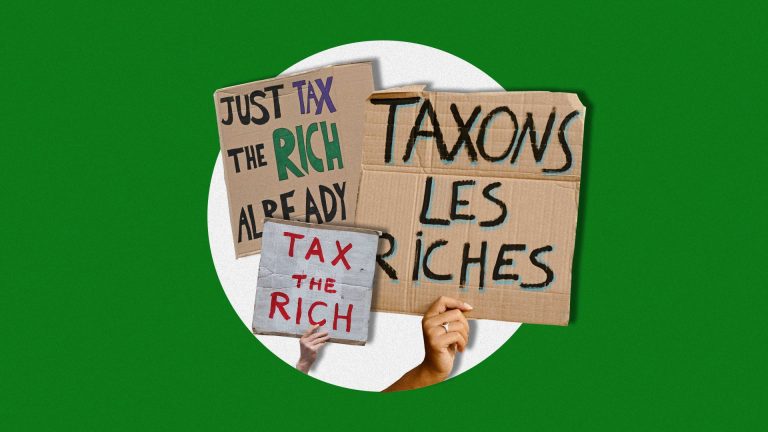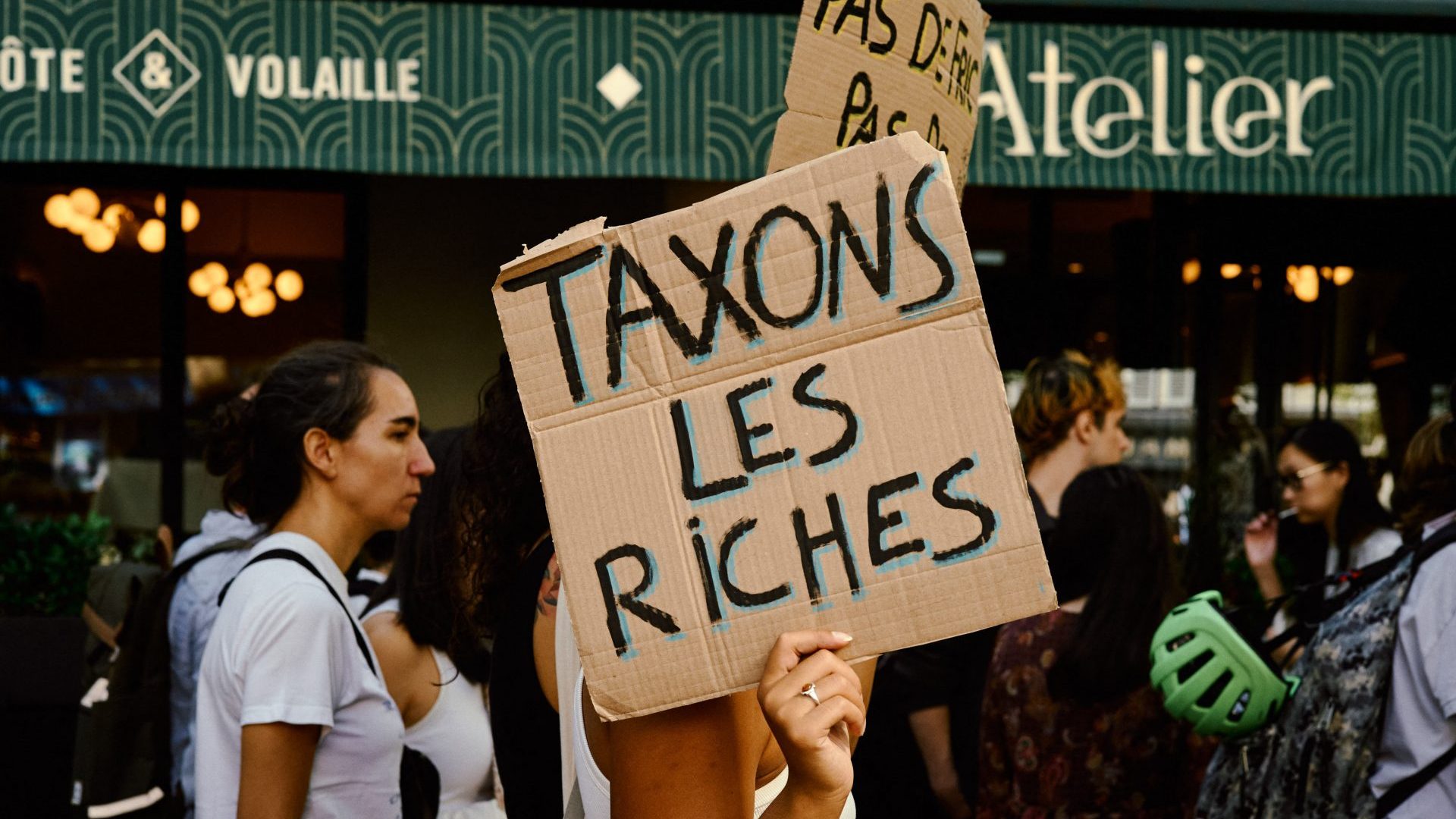The atmosphere at Paris’s Place de la Bastille is festive. Hundreds of people are wearing bright orange and red vests bearing the names of their unions. As I approach the square, I’m met with the tempting smells of street food, a band playing tunes, and lots of young people sitting on the ground. It almost feels like a music festival – if it weren’t for the heavy police presence surrounding the square and the fact that my feet ache from the long walk across the city. The Métro is on strike today, apart from the three automated lines.
For the first time since the 2023 protest against pension reform, the French unions have called for mass demonstrations against the austerity measures proposed by the now former prime minister François Bayrou in the summer. His successor, Sébastien Lecornu, did not rule them out – he has now resigned, after only 27 days in office.
Souad, a nurse with 35 years of experience and a member of the “Work Force” union, is here with two of her colleagues. She agrees that the scale of French public debt is concerning, but refuses to believe that cutting the budget for the public sector is the right solution.
“Rather than penalising the most vulnerable, there are ways to recover funds from the wealthier segments of society,” she says. “There was already the pension reform, and now the trend continues to push people further into poverty. We’re seeing many hard-won social protections being dismantled or reduced, and that’s something we cannot accept.”
In silent agreement with what she’s saying, several people with signs saying “Tax the rich” attached to their backs pass by us in the crowd.
Lecornu was the fifth prime minister since the start of Macron’s second term, and he inspired little hope that the government would change. The sixth is unlikely to change that situation.
“This is supposed to be a left wing government, since we elected deputies from the left,” says Souad. “But that hasn’t been taken into account. And that, too, isn’t right. It goes against democracy.”
Another major group of protesters present here today are teachers. According to union numbers, nearly half of all education workers are on strike in Paris.
Arthur, 32, an elementary school teacher, and Anatole, 29, who works with children with learning difficulties, say there is now less and less money to support students.
“And the question remains: why aren’t the richest being taxed?” asks Anatole. “It feels like we’re going back to a monarchic system, with kings ruling over us, and the democratic principles we used to rely on fading away.”
Suggested Reading


Just tax the rich
“No one’s willing to take a step aside and genuinely listen to the demands being made,” says his colleague Arthur. “The world we’re given today expects us to move forward without really participating. And for us, it’s important to do our part today.”
Wearing a bright orange vest with the logo of the biggest French union, the CFDT, Didier, 67, has also come to play his part. “Being retired doesn’t mean you’re unaffected. We’re directly concerned by laws that may be passed as part of the budget plan.”
Andrey, a Russian opposition activist and recently naturalised French citizen, points out that in the last five years, the profits of the largest French companies have grown constantly, while the disposable incomes of ordinary French people have declined. He believes that raising the voice of popular discontent is crucial.
“In Russia, during the relatively prosperous period of the early 2000s, society let its guard down as, step by step, it was being stripped of what few guarantees it had,” he says. “Even if it’s hard to imagine it here in France, there are no God-given rights that the authorities couldn’t take away. We can see it in the United States: traditionally viewed as a bastion of free speech, today it’s a country where people are being fired for saying things the current president doesn’t like. This is why the people must never ease up the pressure on those in power.”
Svetlana Lazareva is an independent multilingual journalist based in Paris




